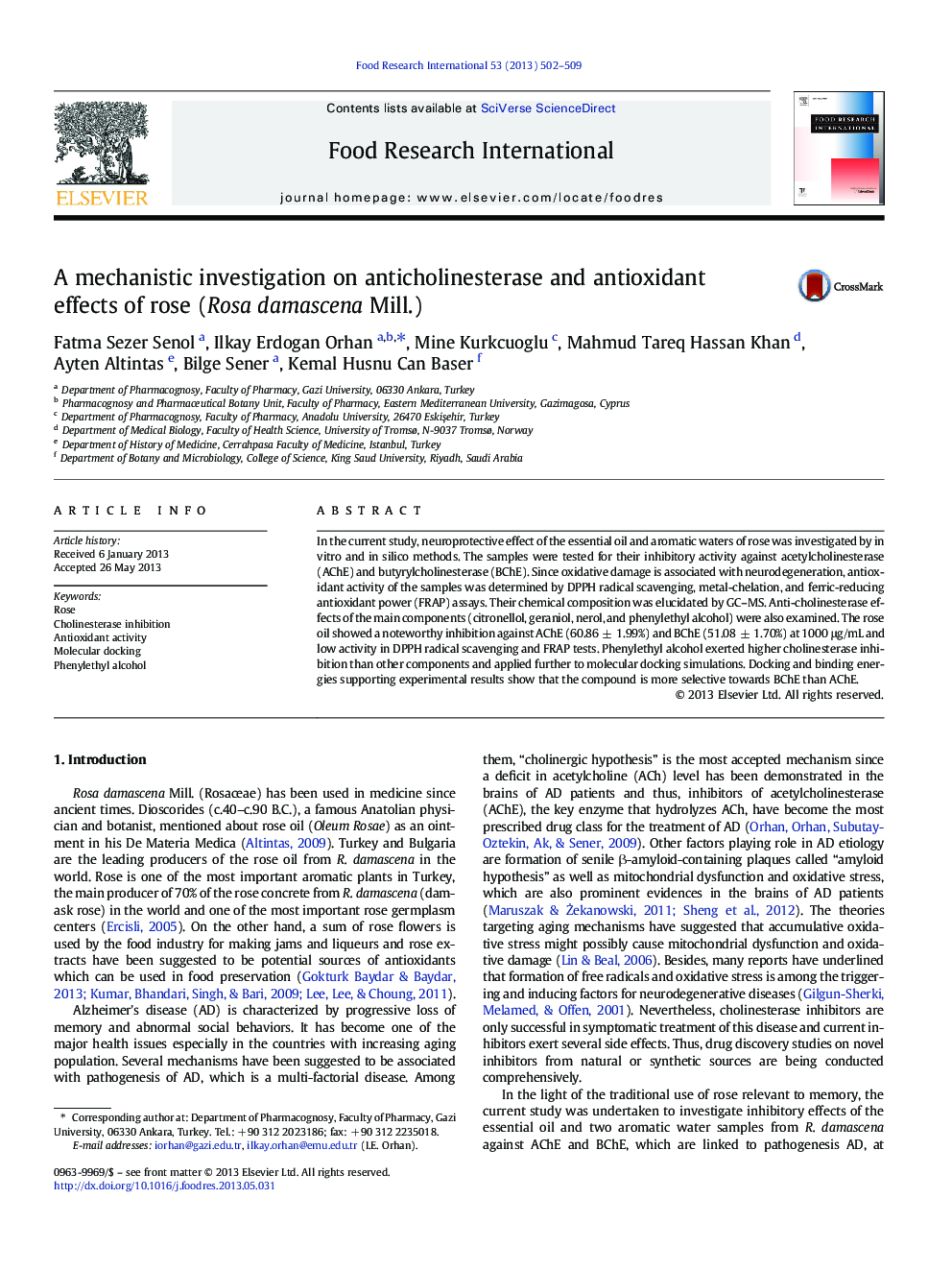| Article ID | Journal | Published Year | Pages | File Type |
|---|---|---|---|---|
| 6397806 | Food Research International | 2013 | 8 Pages |
â¢Neurobiological effect of Rosa damascena was investigated in vitro and in silico.â¢The rose oil showed a noteworthy anticholinesterase and low antioxidant effect.â¢Phenylethyl alcohol showed the highest anti-cholinesterase effect.â¢Molecular docking studies were performed on phenylethyl alcohol.â¢Phenylethyl alcohol is more selective towards BChE than AChE.
In the current study, neuroprotective effect of the essential oil and aromatic waters of rose was investigated by in vitro and in silico methods. The samples were tested for their inhibitory activity against acetylcholinesterase (AChE) and butyrylcholinesterase (BChE). Since oxidative damage is associated with neurodegeneration, antioxidant activity of the samples was determined by DPPH radical scavenging, metal-chelation, and ferric-reducing antioxidant power (FRAP) assays. Their chemical composition was elucidated by GC-MS. Anti-cholinesterase effects of the main components (citronellol, geraniol, nerol, and phenylethyl alcohol) were also examined. The rose oil showed a noteworthy inhibition against AChE (60.86 ± 1.99%) and BChE (51.08 ± 1.70%) at 1000 μg/mL and low activity in DPPH radical scavenging and FRAP tests. Phenylethyl alcohol exerted higher cholinesterase inhibition than other components and applied further to molecular docking simulations. Docking and binding energies supporting experimental results show that the compound is more selective towards BChE than AChE.
